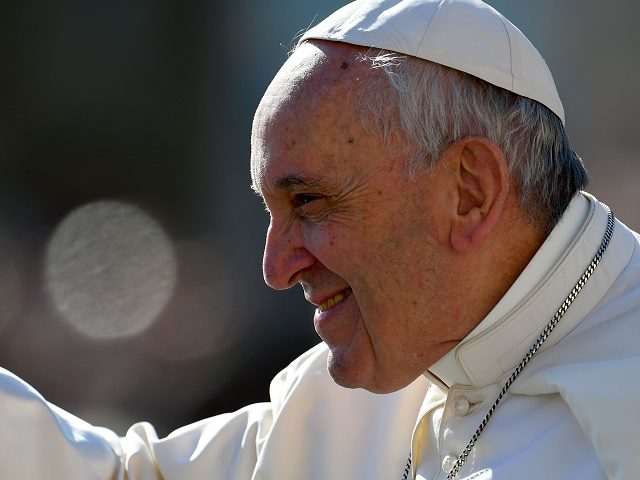In a written message to the United Nations, Pope Francis urged all national, international and civic organizations to work “with determination” to promote the necessary conditions for a world without nuclear weapons.
In his message released Wednesday to coincide with a meeting in New York of a UN conference to negotiate a legally binding instrument to prohibit nuclear weapons, Francis said that the international juridical framework is grounded on peace, the pacific solution of disputes and the development of friendly relations between nations.
“An ethics and a law based on the threat of mutual destruction – and possibly the destruction of all mankind – are contradictory to the very spirit of the United Nations,” the Pope stated. “We must therefore commit ourselves to a world without nuclear weapons, by fully implementing the Non-Proliferation Treaty, both in letter and spirit.”
While acknowledging the manifold threats to peace and security “in this multipolar world of the twenty-first century,” including “terrorism, asymmetrical conflicts, cybersecurity, environmental problems, poverty,” Francis suggested the inadequacy of nuclear deterrence “as an effective response to such challenges.”
Not only is nuclear deterrence insufficient, the pontiff continued, but the proliferation of nuclear weapons raises other concerns as well, such as “the catastrophic humanitarian and environmental consequences that would follow from any use of nuclear weapons, with devastating, indiscriminate and uncontainable effects, over time and space.”
The Pope also criticized “the waste of resources spent on nuclear issues for military purposes,” which could instead be used for “worthy priorities like the promotion of peace and integral human development, as well as the fight against poverty, and the implementation of the 2030 Agenda for Sustainable Development.”
Peace, the Pope suggested, goes beyond the absence of war or a precarious stand-off among nations predicated on fear.
International peace and stability “cannot be based on a false sense of security,” he continued, or “on the threat of mutual destruction or total annihilation, or on simply maintaining a balance of power.”
Peace must rather “be built on justice, on integral human development, on respect for fundamental human rights, on the protection of creation, on the participation of all in public life, on trust between peoples, on the support of peaceful institutions, on access to education and health, on dialogue and solidarity,” he said.
While insisting that the total elimination of nuclear weapons is “a moral and humanitarian imperative,” Francis also recognized that such an endeavor “involves a long-term process” and would require a “pragmatic strengthening of dialogue” and “the building and consolidating of mechanisms of trust and cooperation.”
Any response to the threat of nuclear weapons should be collective and concerted, he said, and directed to the common good and “not to the protection of veiled or particular interests.” He also said that dialogue should include all: “nuclear states, countries which do not possess nuclear weapons, the military and private sectors, religious communities, civil societies, and international organizations.”
“Although this is a significantly complex and long-term goal, it is not beyond our reach,” he said.
Follow Thomas D. Williams on Twitter Follow @tdwilliamsrome

COMMENTS
Please let us know if you're having issues with commenting.